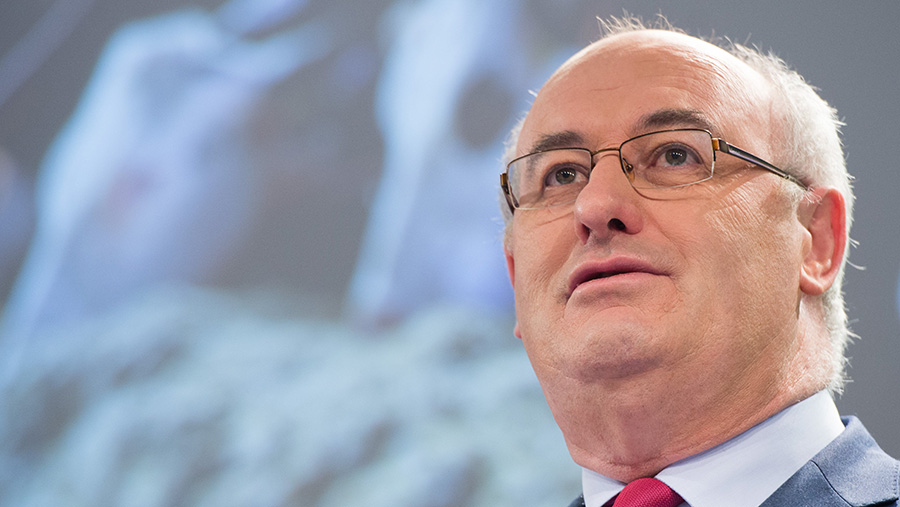Europe’s food chain is ‘broken,’ warns farm commissioner
 © Isopix/REX/Shutterstock
© Isopix/REX/Shutterstock EU farm commissioner Phil Hogan has acknowledged that Europe’s food chain is “broken” – with more work needed to secure better prices for producers.
“This is a difficult time for many farmers, in particular those specialised in dairy or pigmeat production,” Mr Hogan told a political forum in Vilnius, Lithuania.
“Prices are currently very low and it is difficult to produce under these circumstances.”
See also: UK receives €36m farm aid from Brussels
The EU food chain faced many opportunities – but it also faced challenges, said Mr Hogan in a speech about “rethinking the food-supply chain” on 31 March.
He warned: “We also have to be honest enough to acknowledge that many links in our food chain are currently broken.”
Globalisation brought trade benefits but could also have the negative effect of concentrating bargaining power in the hands of the food-processing and retail sectors.
We need to work together to improve the functioning of the food chain. This is a responsibility we must take seriously Phil Hogan, EU farm commissioner
“We need to work together to improve the functioning of the food chain. This is a responsibility we must take seriously.”
A growing and increasingly affluent world population gave farmers the chance to get a “bigger slice of a bigger pie” from added-value in the food chain. But Mr Hogan said it had also exposed the food chain to greater market instability and volatility.
Due to report this autumn, an Agricultural Markets Task Force comprising 12 senior food chain experts would recommend changes in legislation to improve balance in the supply chain.
“Farmers must not continue to be the weakest link in the chain,” said Mr Hogan.
The task force was examining issues and topics such as transparency, collective self-help tools, access to financing and futures, contracts and contractual relations.
But Mr Hogan said it was also important to look at the price paid by producers for farm inputs.
“It’s overarching mandate is to strengthen the farmer’s position in the food chain,” said Mr Hogan.
“[But] when analysing how to boost the competitiveness of our farmers we cannot limit the discussion to how farmers should be better paid for their products.”
Fertiliser prices, for example, were linked to energy prices.
Natural gas represented a substantial part of the cost of production of nitrogen fertiliser.
But the price of nitrogen fertiliser had fallen in the last year by less than the price of natural gas.
“I can assure you that the commission will continue to closely monitor the fertiliser markets and will not hesitate to take further measures if deemed necessary.
“If the price of energy drops, this must be reflected throughout the whole chain all the way to its end point.”
